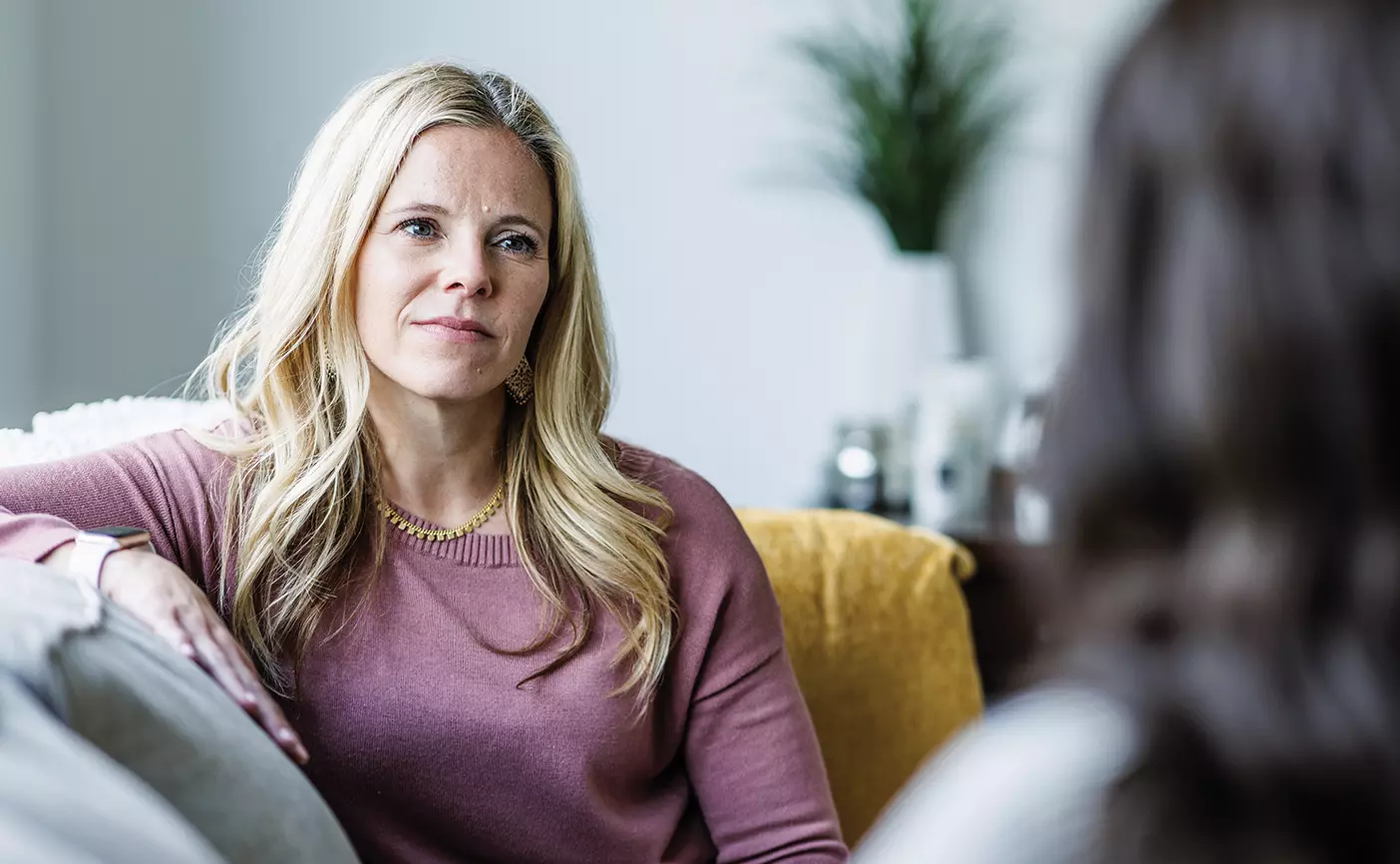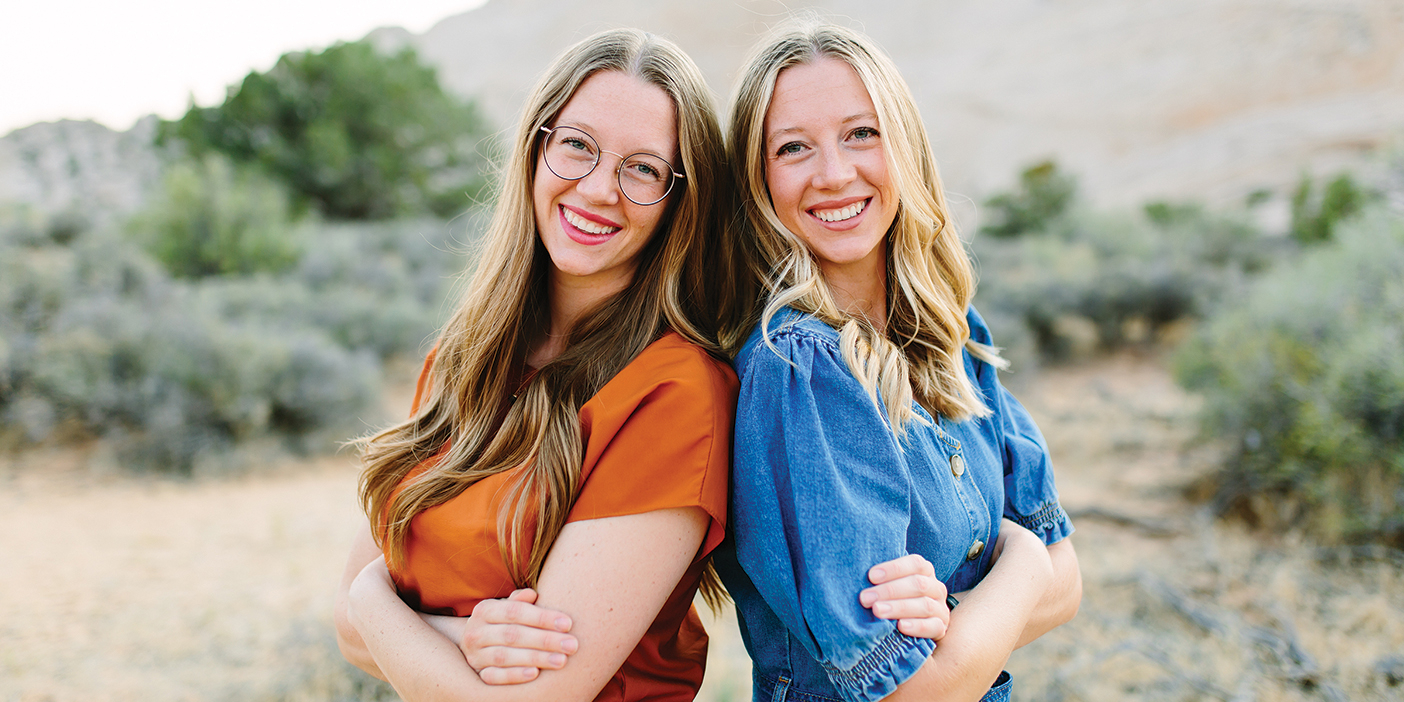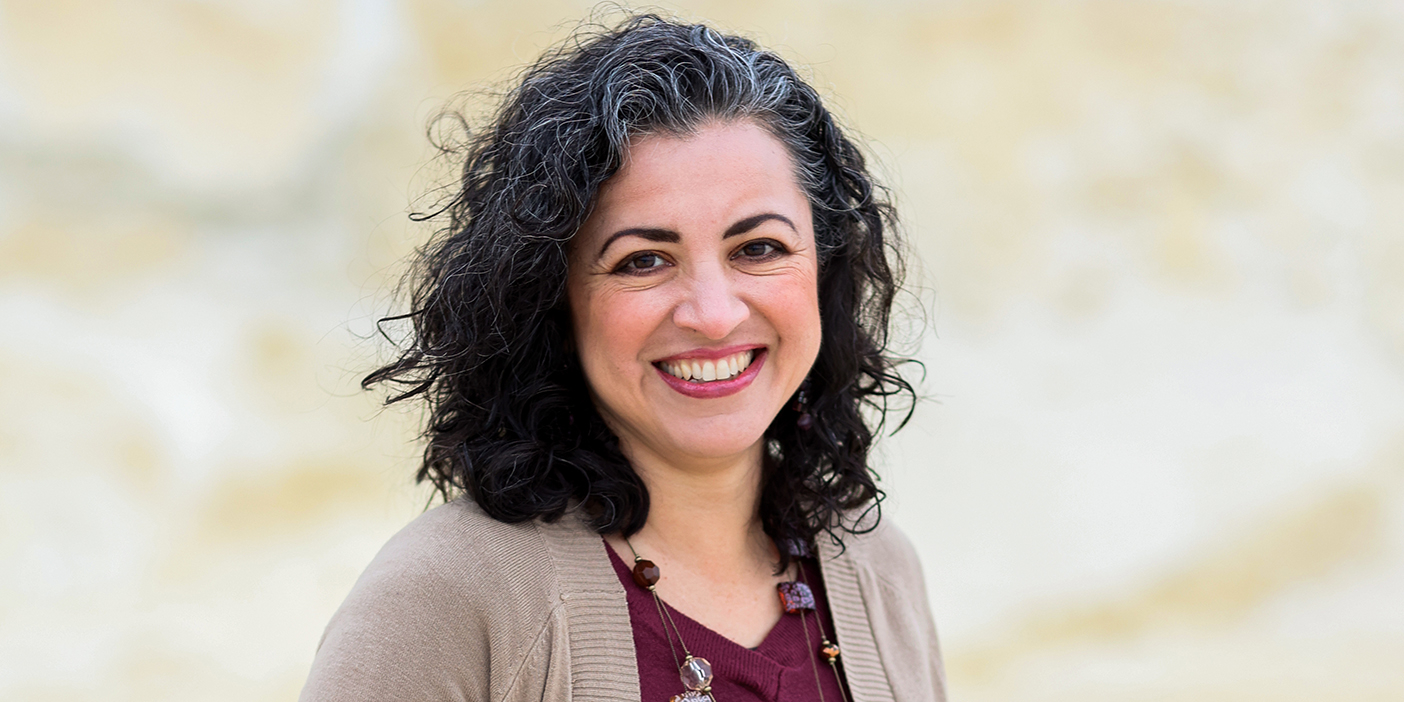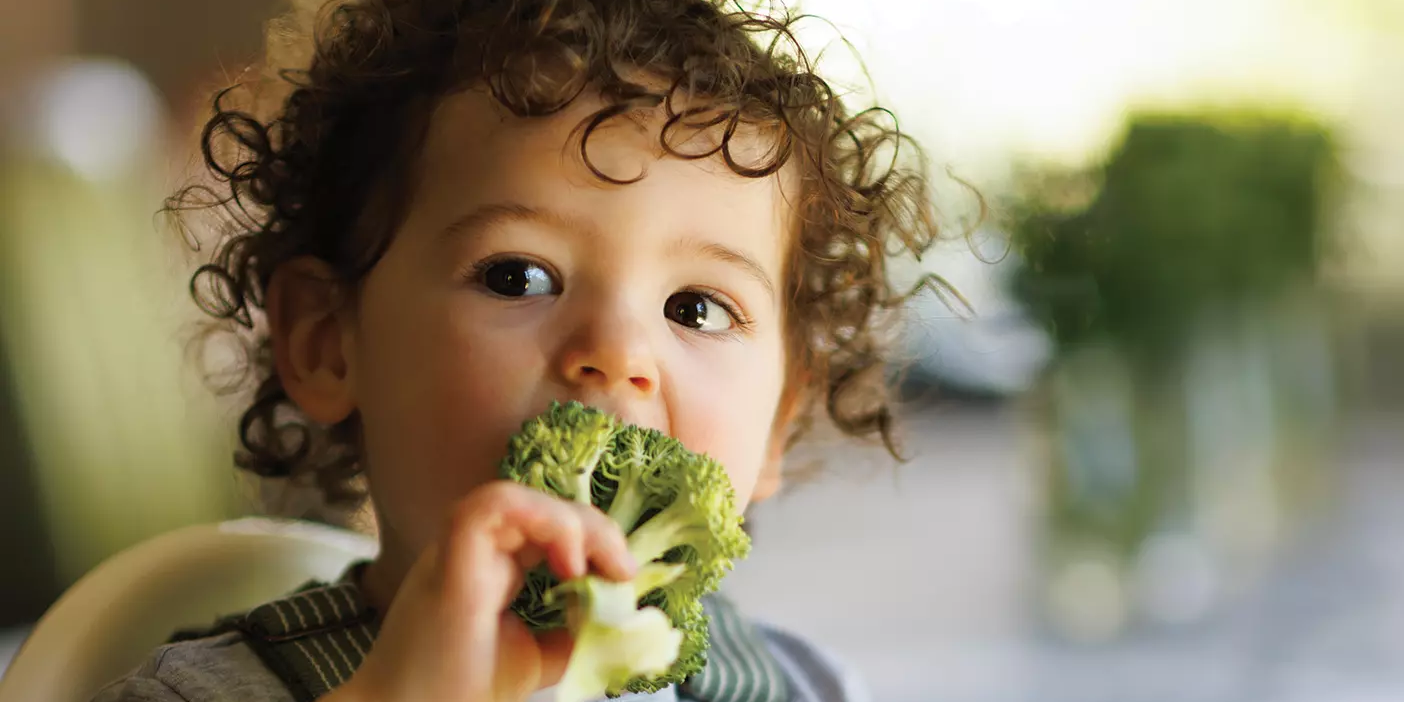After struggling through an eating disorder, an alumna is helping others find their way.

Anna Manwaring Packard (BS ’03, PhD ’10) cried when she learned her first child would be a little girl. But her tears were not tears of joy. “I felt so scared that she would go through what I went through with an eating disorder,” Packard says. “I didn’t want that for her.”
Today as a therapist who treats clients struggling with body image and eating disorders, Packard knows firsthand how pressure to be “perfect” can make one’s body feel like a product and turn food into a nemesis.
As a teen Packard started at a new high school after a family move. Between trying to make friends and struggling with depression, she felt overwhelmed. Her stress morphed into an obsession with food and weight. “I remember how uncomfortable I felt in my body and clothes,” Packard says. “I remember how anxious food made me and how afraid I was of weight gain.”
In response she entered a vicious cycle of starving herself, binging, and purging. Food occupied almost all her thoughts as calorie counts, avoidance strategies, and weight management became more important than friends, family, and school.
At BYU her eating disorder worsened. “Everyone was incredibly smart, disciplined, talented, spiritual, and beautiful,” Packard says. “Coming from a perfectionistic mindset, I felt I was never enough of those things.”
By the middle of her freshman year, Packard realized her obsessive thinking was destroying her connection to others. She confided in her mom, who encouraged her to reach out for professional help.
As she met with her psychologist, Packard began to heal and develop hope—that she could change her relationship with food and overcome her perceptions about her body and that she didn’t need to meet some unrealistic ideal “to have love, connection, and success in my life,” she says.
As she recovered, Packard found she finally had time to enjoy life. She immersed herself in her psychology coursework, determined to provide others with the same hope she had discovered.
After completing a PhD in psychology, Packard worked at an inpatient residential hospital for eating disorders. She then worked four years at BYU’s Counseling and Psychological Services (CAPS) before joining a private clinic focused on eating disorders. Her own experience allows her to empathize with her clients: “I understand how scary it feels to relinquish rigid standards, behaviors, and beliefs and open yourself up and be vulnerable.”
Packard has come a long way from the terrified new mother she once was. She’s found power in having a positive relationship with food and her body—helping her teach her children and clients the importance of self-acceptance. “The most empowered versions of ourselves are found when we live inside our bodies as they’re meant to be lived in, which is to bring us joy,” she says.
SERVICE STORIES: In Going Forth Y Magazine shares stories of alumni making the world a better place by serving in their communities, congregations, and homes. Let us know when you see an alum going about doing good. Send your nominations (and any photos) to alumninews@byu.edu.












